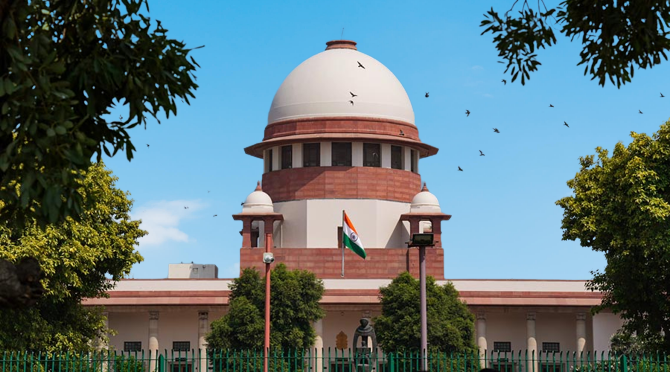
“Public health is a state subject, and the responsibility of furnishing healthcare services is that of
separate state governments.”
The Central government and its agencies aren’t the enforcing bodies for schemes relating to
menstrual health, and it’s in fact the countries and their agencies that are at the forefront of
enforcement of those programmes, “held by the court.”
The Government of India is dedicated to improving young and adolescent girls’ menstrual
hygiene access. To achieve this goal, various awareness and training programs have been carried
out, and programs have been launched to guarantee that the essential resources for menstrual
hygiene are available and reachable across the country.
Continuing the state’s statement, it further said that it is committed to providing menstrual
hygiene products for young ladies and women for their personal hygiene.There are teenagers
who are not prepared for menstruation and menstrual hygiene and these subjects are not taught
by their parents taking the matter lightly. The lack of resources and illiteracy make health
detorate and unhygienic behaviors more frequent, causing serious health consequences ,
increasing stubbornness of these problems ultimately leads to dropping out of school.
The program was reportedly initiated with the goal of promoting gender parity in education, as it
holds significant importance for young girls to appreciate the significance of education.
Citing a 2018 Delhi High Court order, the suit claims it ordered the Delhi government to give
free or subsidized access to menstrual hygiene products in seminaries and to give training on
menstrual hygiene and period.
“Prevalent myths about menstruation force millions of girls to drop out of school early,” the plea
said
The Central government and its agencies are no longer the enforcing bodies for schemes
referring to to menstrual health; and it is in reality the states and their organizations which are at
the forefront of enforcement of the policies,” the ministry said.
The court had previously requested the help of Additional Public Prosecutor Aishwarya Bhati for
the case because of the significance of the matter.
According to the court’s findings, the government has given states funding totaling more than
Rs 197 crore for 2022–2023 to execute menstrual hygiene regulations nationwide.
The Indian ministry has stated that menstrual practices and periods are associated with social
restrictions, taboos, and limited access to hygiene products and safe sanitation facilities for
women and adolescents in India.
The plea Indicates that due to common misconceptions about menstruation, many girls are forced
to quit school early. The ministry explained that it is the responsibility of the states and their
organizations to enforce menstrual health policies rather than the central government and its
agencies.
“The statement argued that menstrual hygiene management is still considered a taboo in many
societies and is surrounded by a culture of silence and shame.”Lack of options for menstrual
cleanliness administration is a significant obstacle to education, and it causes many girls to drop
out of school because they do not have access to sanitation facilities and menstrual products.
Lacking Menstrual Cleanliness Administration alternatives are a major obstruction to instruction,
with numerous young ladies dropping out of school due to need of get to to sanitation offices,
menstrual items and the disgrace related with menstruation ,the troubles these young ladies
confront have been compounded by the reality that a few instructive educational institutions have
basic washroom facilities.. Advocate Varinder Kumar Sharma stated.
It was further requested,the Center and all the states as parties and inquired the court to
coordinate them to have isolated toilets for young ladies in all government, supported and private
schools.
Instructions were also sought to provide a janitor in all government, aided and residential schools
to clean toilets and introduce a program to sensitize students on menstrual health.
Sonali Pradhan Netaji Subhash University




0 Comments